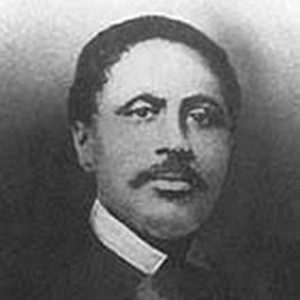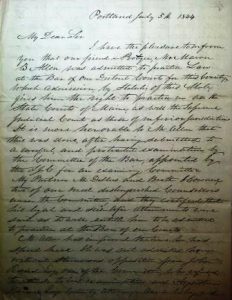Here’s a look at what is planned at the MHS this week:
On Monday, 6 May, at 2:00 PM: Abigail Adams: Nature & Nurture. “The Earth is putting on a new Suit,” Abigail Adams wrote, savoring the arrival of spring amid the tumult of national politics in 1800. Tending her kitchen garden and nurturing the new republic with equal care, Abigail delighted in learning about the natural landscape and sharing that knowledge with her family and friends. Join an Adams Papers editor for an in-depth look at the pop-up display.
On Tuesday, 7 May, at 5:15 PM: The Struggle for Revolutionary Settlement with Eliga Gould, University of New Hampshire; Katherine Grandjean, Wellesley College; Stephen Marini, Wellesley College; Brendan McConville, Boston University, and moderator Alan Rogers, Boston College. In the ten years after the American victory at Yorktown in 1781, the nation faced myriad problems and challenges. This panel examines how the revolutionary generation confronted issues of diplomacy, governance and economic growth, and how the legacies of warfare and political convulsion shaped spiritual and social behaviors in those troubled years. This is part of the Boston Area Seminar on Early American History series. Seminars are free and open to the public.
On Wednesday, 8 May, at 12:00 PM: Odor & Power in the Americas: Olfactory Racism & the Atlantic World with Andrew Kettler, University of Toronto. This talk shows that capitalism incentivized discourses of African pungency applied by intellectuals throughout the Atlantic World to justify racial dominance. Born of English literature, and agitated during the late Enlightenment, the idea that African bodies smelled perpetuates into modernity as a discourse of embodied racism. This is part of the Brown-bag lunch program. Brown-bags are free and open to the public.
On Thursday, 9 May, at 6:00 PM: Massachusetts in World War I with Theodore Sedgwick. On February 24, 1919, Pres. Woodrow Wilson arrived in Boston after completing the negotiations of the Treaty of Versailles that ended World War I. He was met by a thunderous crowd; the Boston Evening Globe wrote “it seemed that every noise-making instrument in Boston had been set in motion.” The Yankee Division of the Massachusetts National Guard had been one of the first U.S. units deployed in the war. Bay State residents were some of the most active in the war, both on the front lines and in shipyards outfitting navy ships; however, somehow the Great War is often forgotten. This program will explore the history of Massachusetts in WWI as well as why the forgotten war should be remembered. A pre-talk reception begins at 5:30 PM; the speaking program begins at 6:00 PM. There is a $10 per person fee (no charge for MHS Fellows and Members or EBT cardholders).
On Saturday, 11 May, from 9:00 AM to 4:00 PM: “Shall the Tail Wag the Dog?” The Fight For & Against Women’s Suffrage. Massachusetts citizens played a central role in the suffrage movement; Worcester hosted the first national woman’s rights convention in 1850 and Bostonians, led by Lucy Stone, headed a national suffrage organization and edited a long-running woman’s rights newspaper. In response to these influential reformers, activists formed the first anti-suffrage organizations in Massachusetts as well. Drawing on MHS collections and our new suffrage exhibition, we will explore letters, newspapers, political cartoons, visual propaganda, and other sources that illuminate the history and motivations of women on both sides of the campaign for the vote. This workshop is open to all K-12 educators. Teachers can earn 22.5 Professional Development Points or 1 graduate credit (for an additional fee). There is a $25 per person registration fee. For questions, please contact Kate Melchior at kmelchior@masshist.org or 617-646-0588.
“Can She Do It?”: Massachusetts Debates a Woman’s Right to Vote is open Monday and Wednesday through Saturday from 10:00 AM to 4:00 PM, and Tuesday from 10:00 AM to 7:00 PM. Featuring dynamic imagery from the collection of the MHS, the exhibition illustrates the passion on each side of the suffrage question. For over a century, Americans debated whether women should vote. The materials on display demonstrate the arguments made by suffragists and their opponents. While women at the polls may seem unremarkable today, these contentious campaigns formed the foundations for modern debates about gender and politics.
Take a look at our calendar page for information about upcoming programs.



